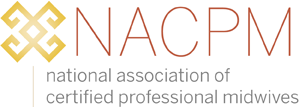NACPM is committed to justice for all childbearing people, their babies and their families, and to ensuring their health and wellbeing. In this issue we focus on two issues of concern to pregnant people and families in the U.S.: the unconscionable practice of shackling incarcerated laboring prison inmates and the assault on the rights of American citizens by the denial or revocation of passports for people born at home in the U.S. with midwives.
Newly-Licensed CPMs Likely to Change the Economics of Giving Birth in Alabama
On celebratory note, NACPM applauds the September 13th report by Julia Simon of National Public Radio on the program, Morning Edition, highlighting the health and economic benefits coming soon to the people and state of Alabama as a result of the successful efforts by the Alabama Birth Coalition to pass the Childbirth Freedom Act in May 2017. This legislation establishes a board of midwifery and licensing for Certified Professional Midwives. The implementation of this law is about to begin, allowing CPMs to serve families choosing home birth. If you missed the live broadcast on September 13th, download the audio and enjoy this momentous National Public Radio account of the benefits of CPM care!
NACPM Joins the Call to End Shackling of Pregnant Inmates
On September 13th, an article in the Washington Post announced bipartisan legislation, spearheaded by Rep. Karen Bass (D-CA) and Rep. Mia Love (R-UT), to outlaw the shackling of pregnant women in federal prisons. Currently, only 22 states and the District of Columbia have established anti-shackling laws– and even these states lack strict reporting requirements, making enforcement difficult to assess. This House legislation, along with the Senate’s Dignity for Incarcerated Women Act, introduced July 11, 2017 by Senators Cory Booker (D-NJ) and Elizabeth Warren (D-MA), would ban the shackling of pregnant inmates at the federal level. “Shackling women can endanger their pregnancy,” Bass said. “The idea that a pregnant woman is going to escape anywhere when she can barely walk is ludicrous. Shackling women on the wrists, waist and legs is a dangerous practice and a cruel practice.”
In January 2018, the NACPM Board voted to endorse ACOG’s Committee Opinion Statement: Health Care for Pregnant and Postpartum Incarcerated Women and Adolescent Females. With this endorsement, NACPM joins ACOG, the American Medical Association, the American Public Health Association, the American College of Nurse-Midwives and others in calling for an end to the shackling of all pregnant people during labor, and the provision of respectful and safe care to all pregnant inmates. NACPM will support the emerging federal legislation to end shackling and calls on all 28 states and territories with no currently established laws to pass similar legislation.
For decades, international human rights organizations have expressed concern about the use of shackling of pregnant women during labor in the U.S. In 1999, Amnesty International published a report, “Not Part of My Sentence”: Violations of the Human Rights of Women in Custody,” calling for an immediate end to the practice. While international standards restrict the use of physical restraints to preventing escape, injury to self or others, or damage to property, in the U.S. such restraints, including ankle and belly chains and metal handcuffs, are used as a matter of course.
The critical importance of ending the practice of shackling and providing safe pregnancy care in prisons takes on added significance with the growing attention to the injustices of mass incarceration. In 2018, 2.3 million people were held in U.S. prisons, a rate far beyond any other nation in the world. In addition, the racial, ethnic and social make-up of incarcerated populations is dramatically different from that of the U.S. as a whole. Black people make up 40% of prison inmates, despite constituting only 13% of the U.S. population. Native men are incarcerated at four times the rate of white men. Nearly one in six transgender people , including 21% of transgender women, have been incarcerated at some point in their lives—far higher than the rate for the general population
Rates of incarceration are growing faster for women than for men, with 219,000 imprisoned in 2017. Sixty percent of these women have not been convicted of a crime and are in jail awaiting trial. Although there is little reliable data, 1,400 people are estimated to give birth in prison each year, with thousands more who are pregnant passing through our prisons annually. These people are exceptionally vulnerable to “shamefully dangerous prenatal care,” shackling during labor, and separation from their infants after birth. Parent-infant bonding is crucial for the mother herself and for the infant’s development as a healthy functioning adult. Lack of adequate bonding endangers the infant’s mental health and very survival and bodes ill for the post-imprisonment functioning and ability to parent for the mother. Justice demands reform of our policies of mass incarceration, and the end to practices that threaten and endanger the health and well-being of incarcerated pregnant people and their infants.
